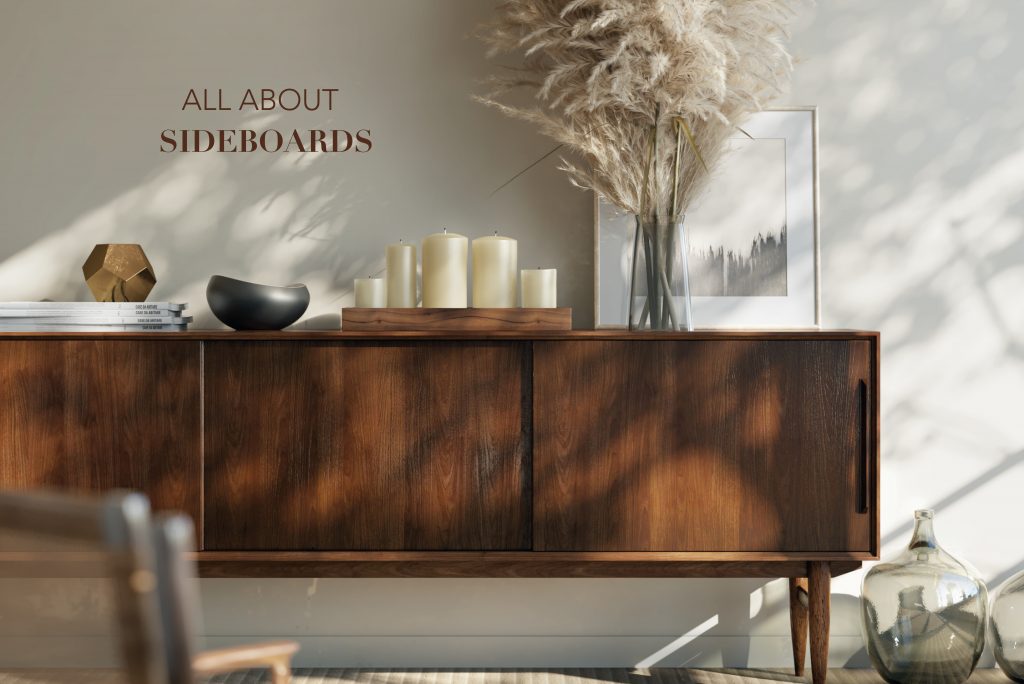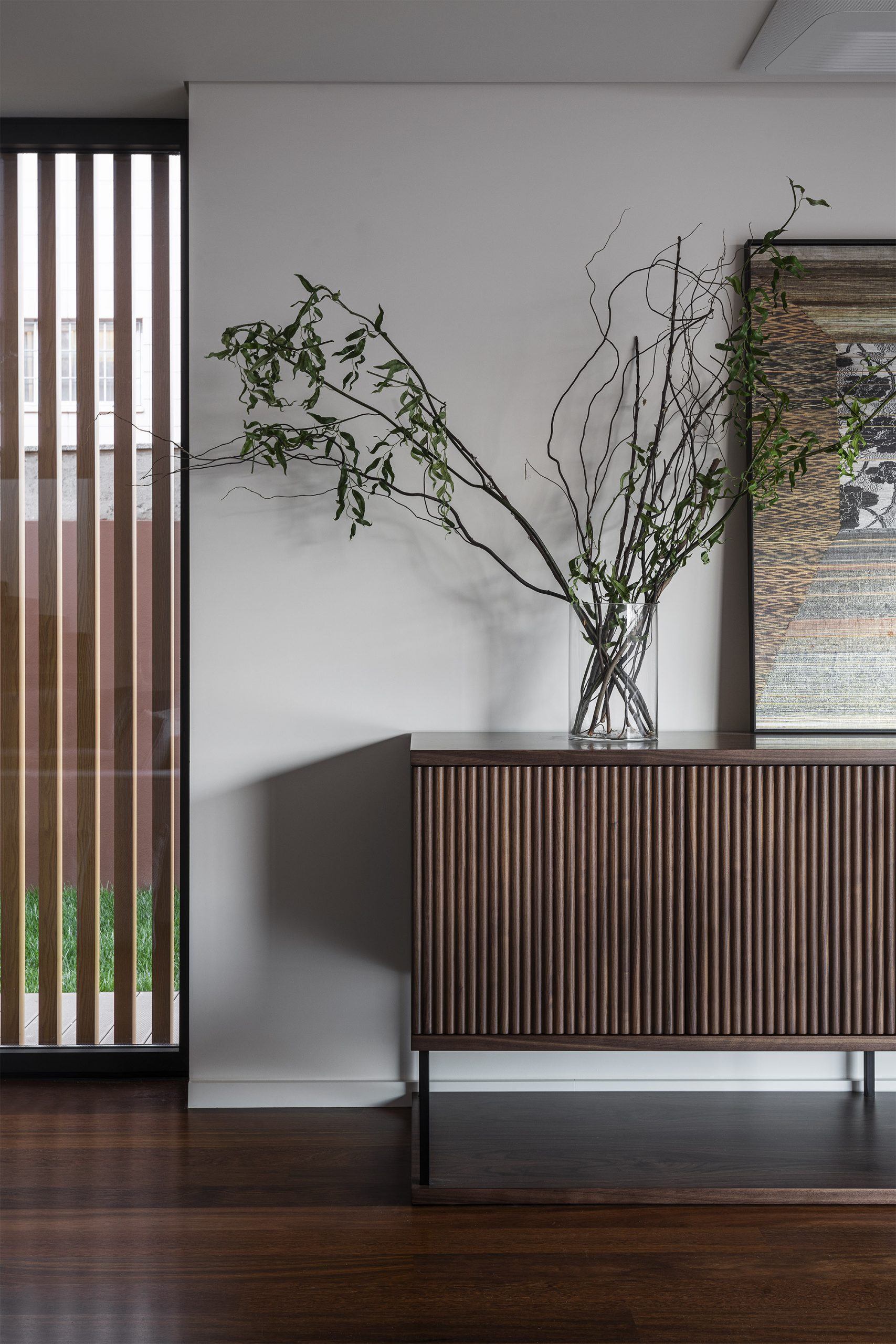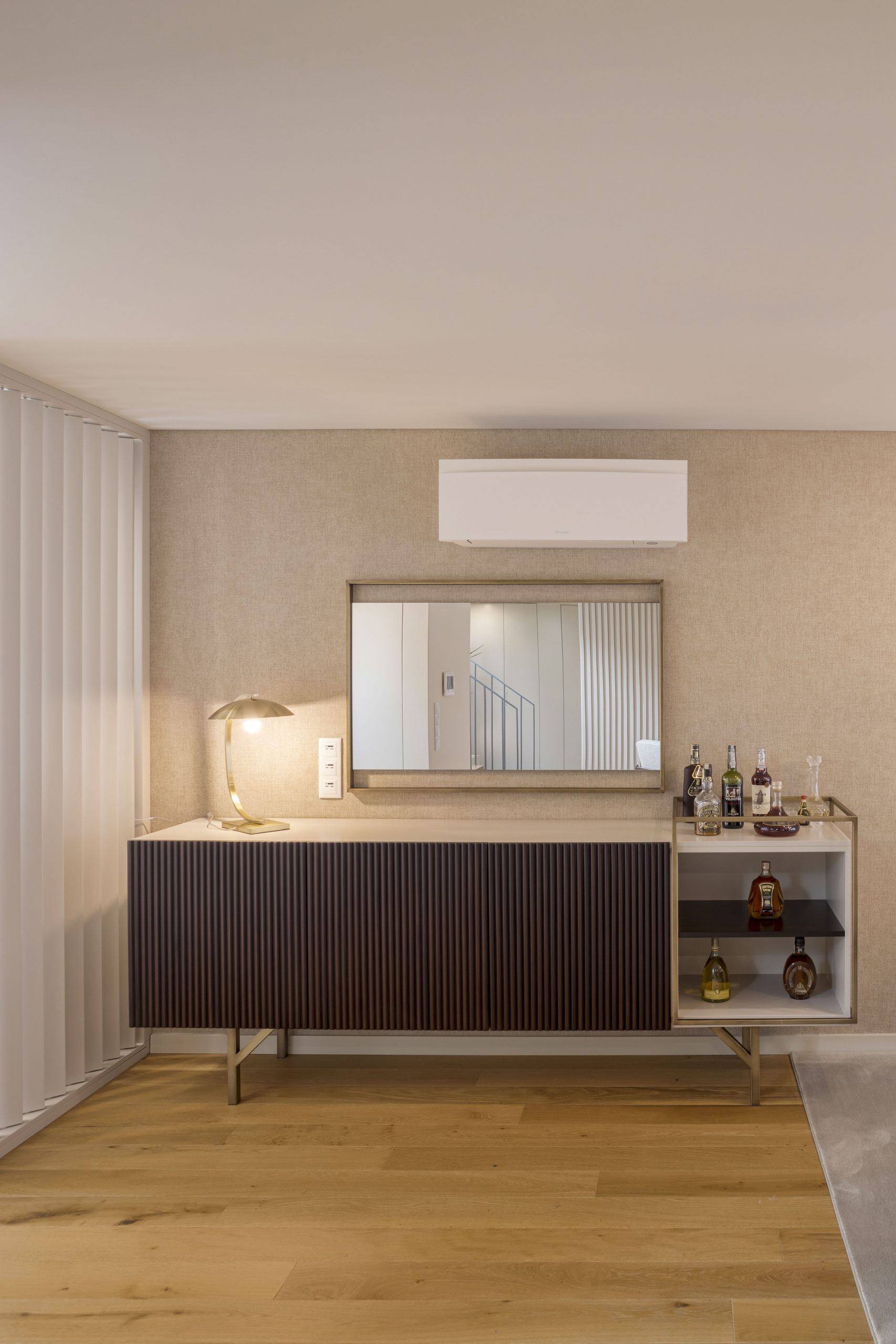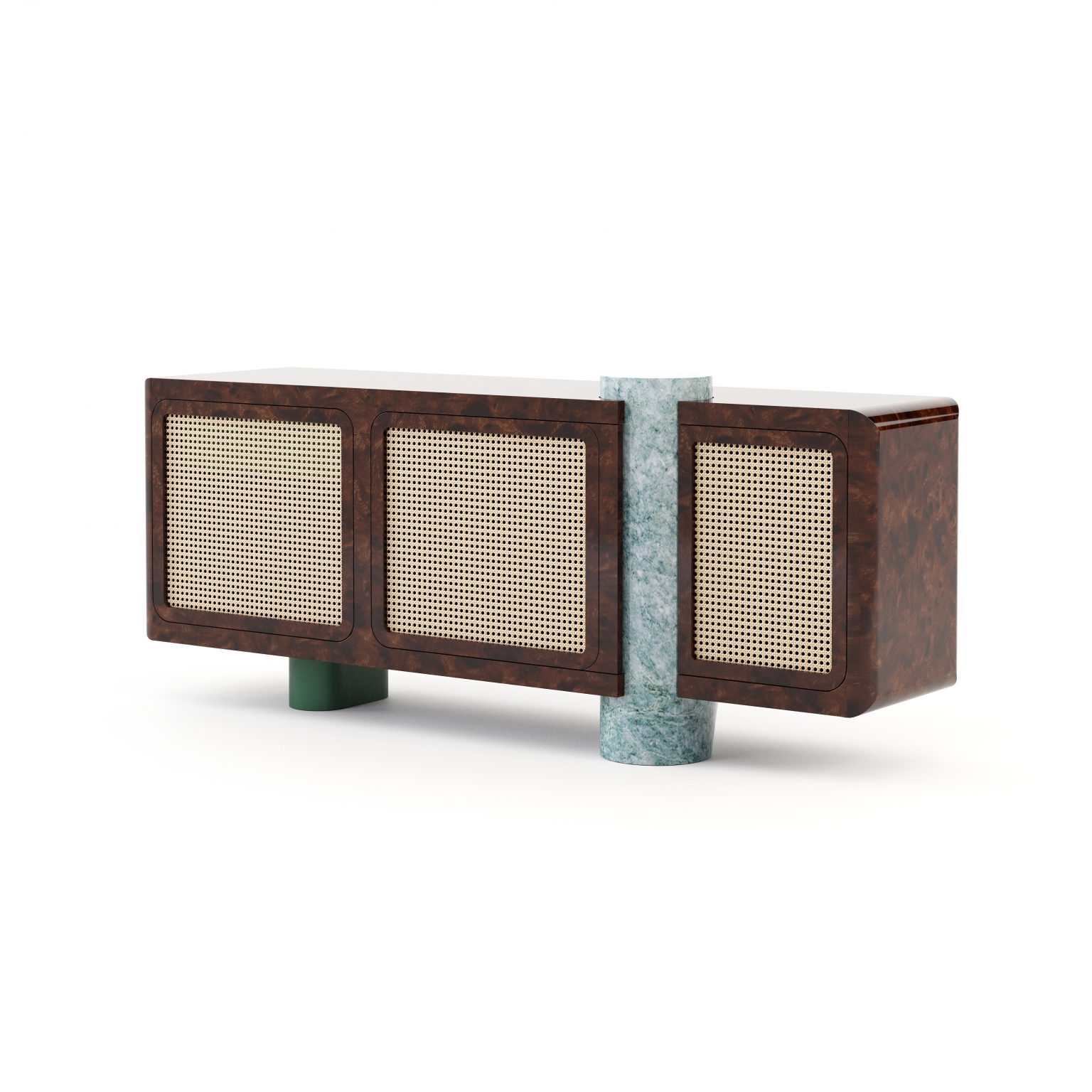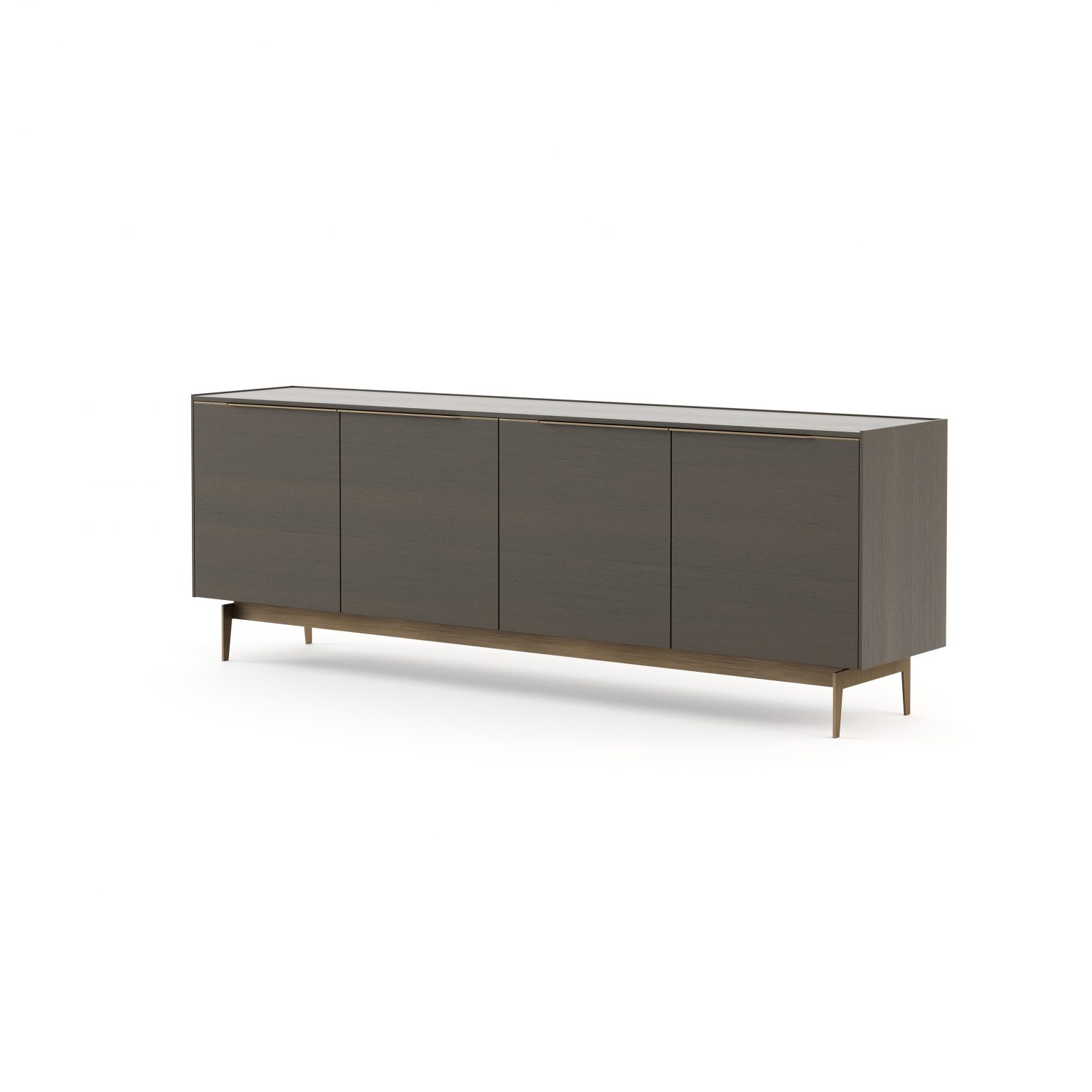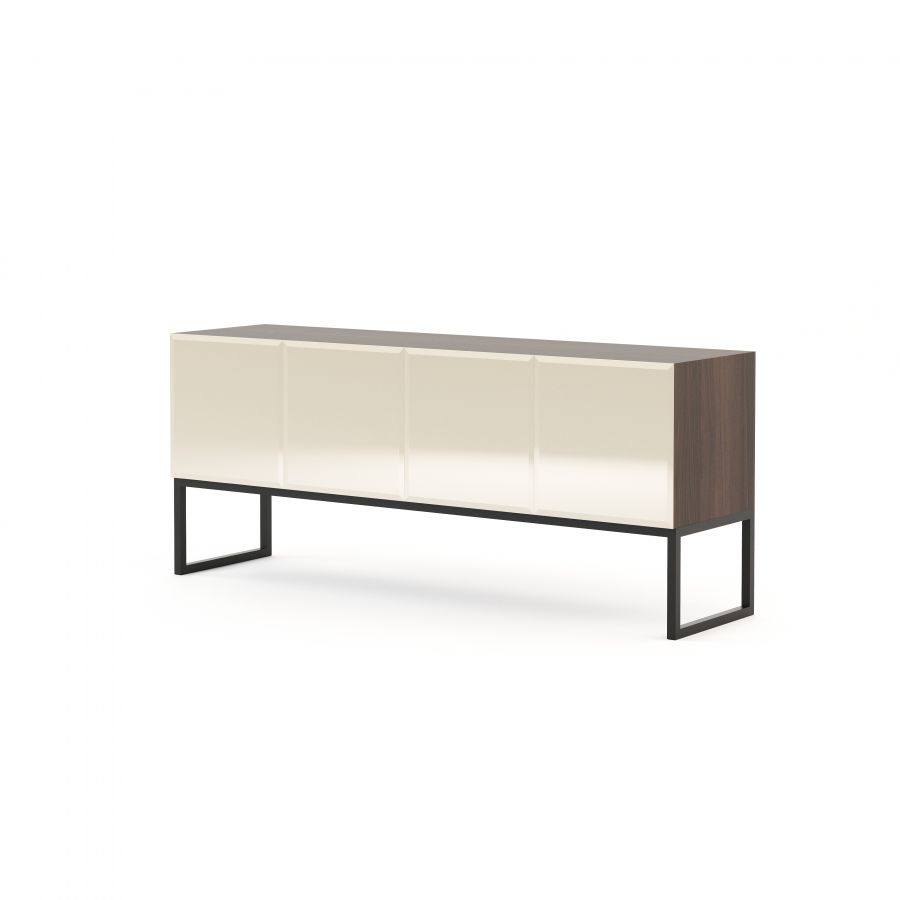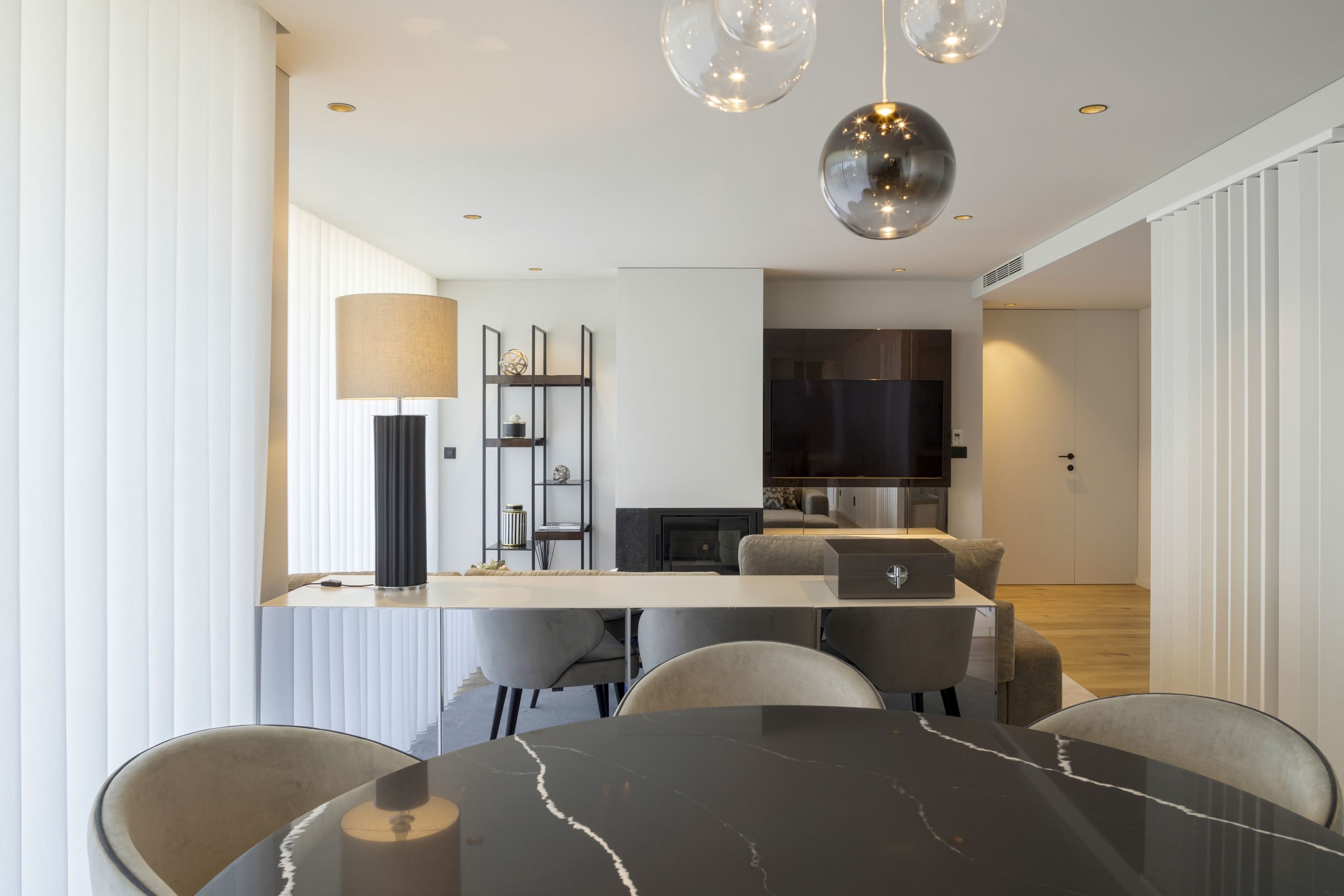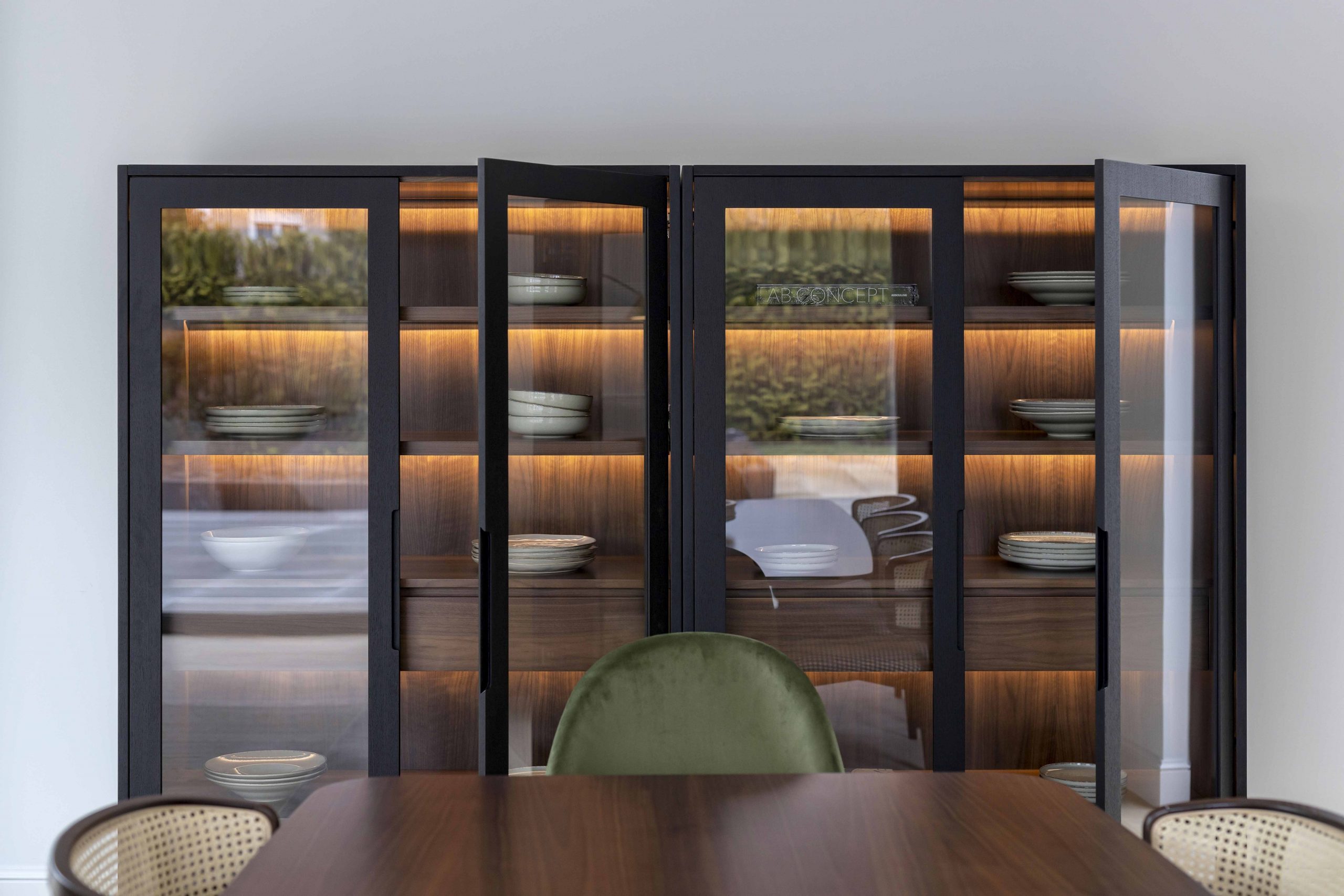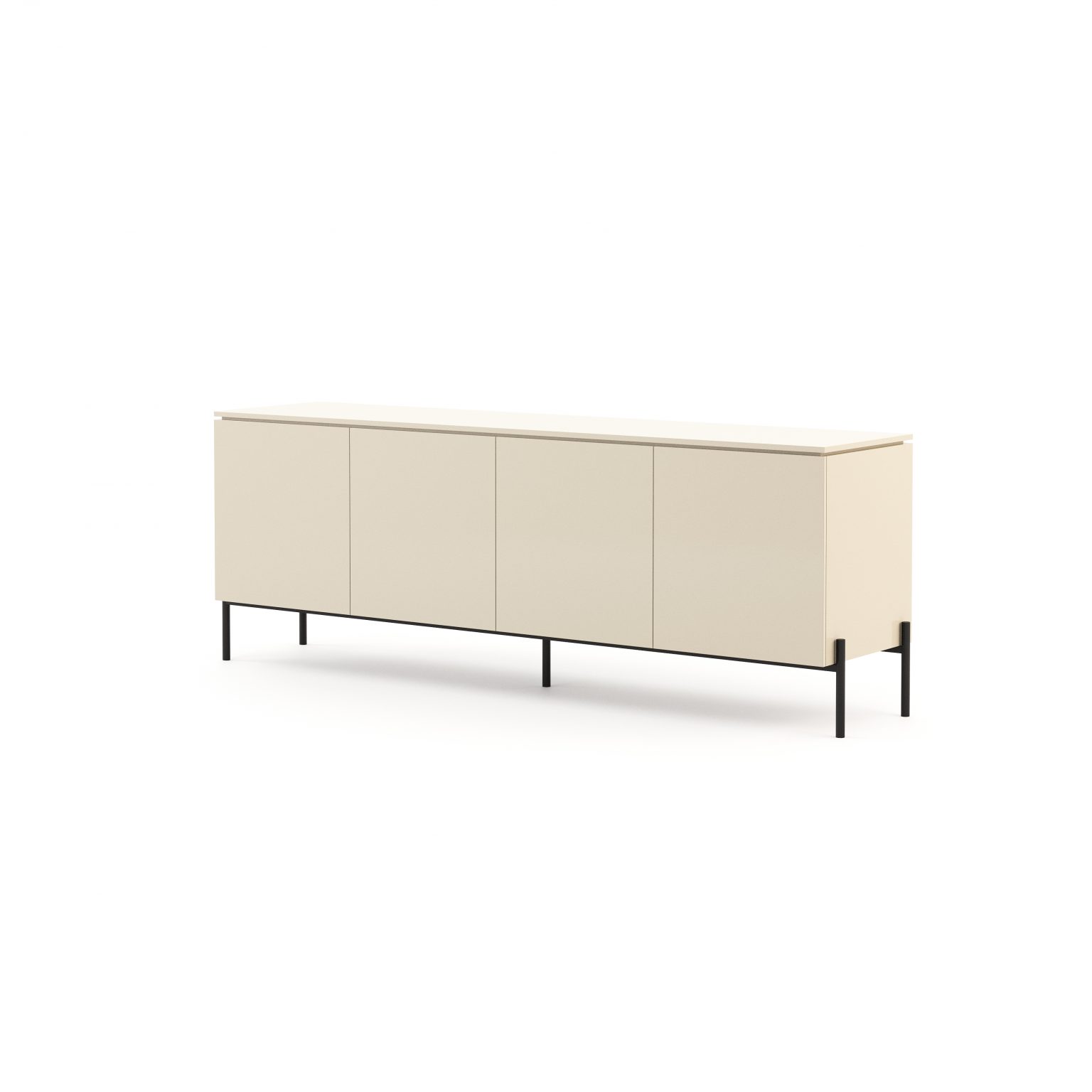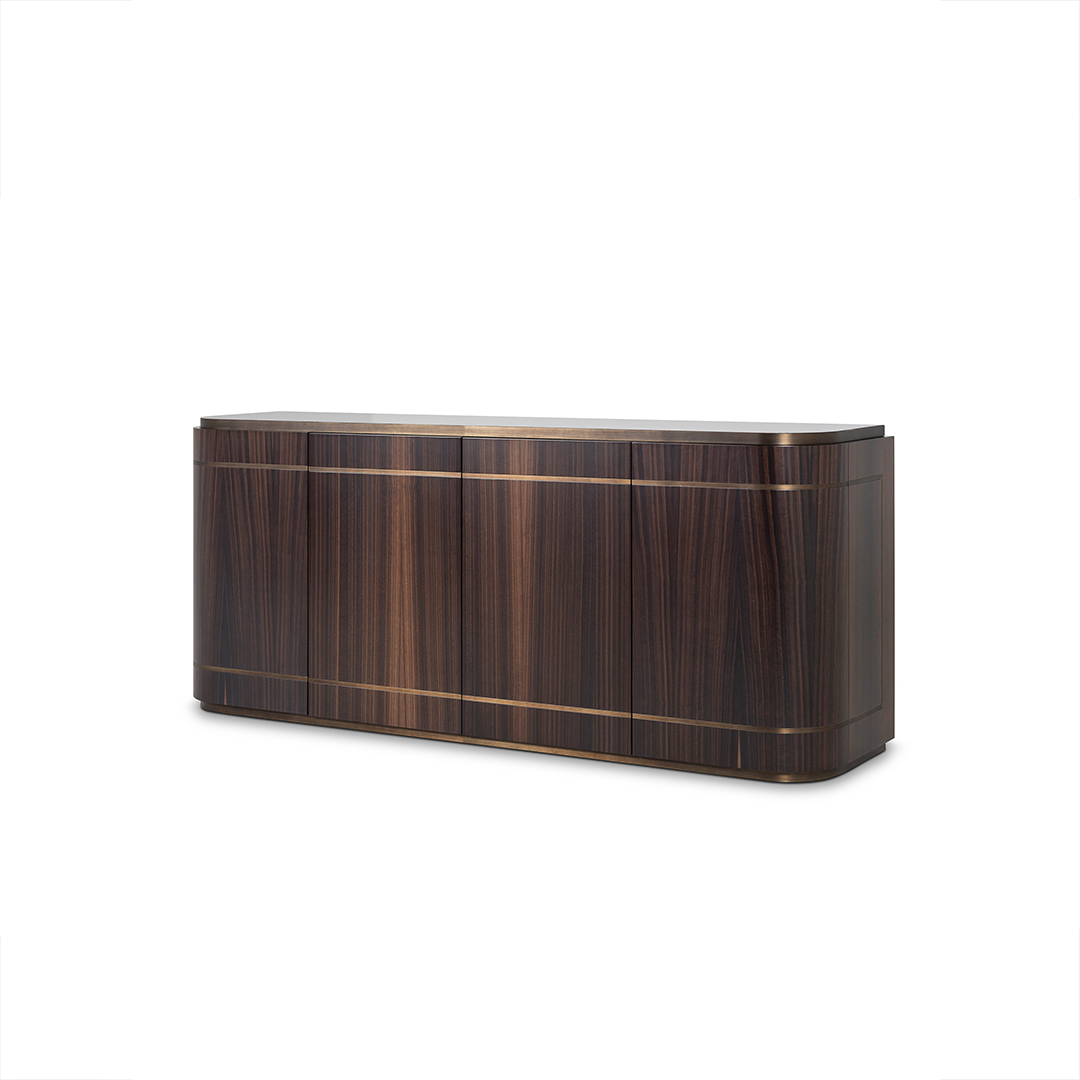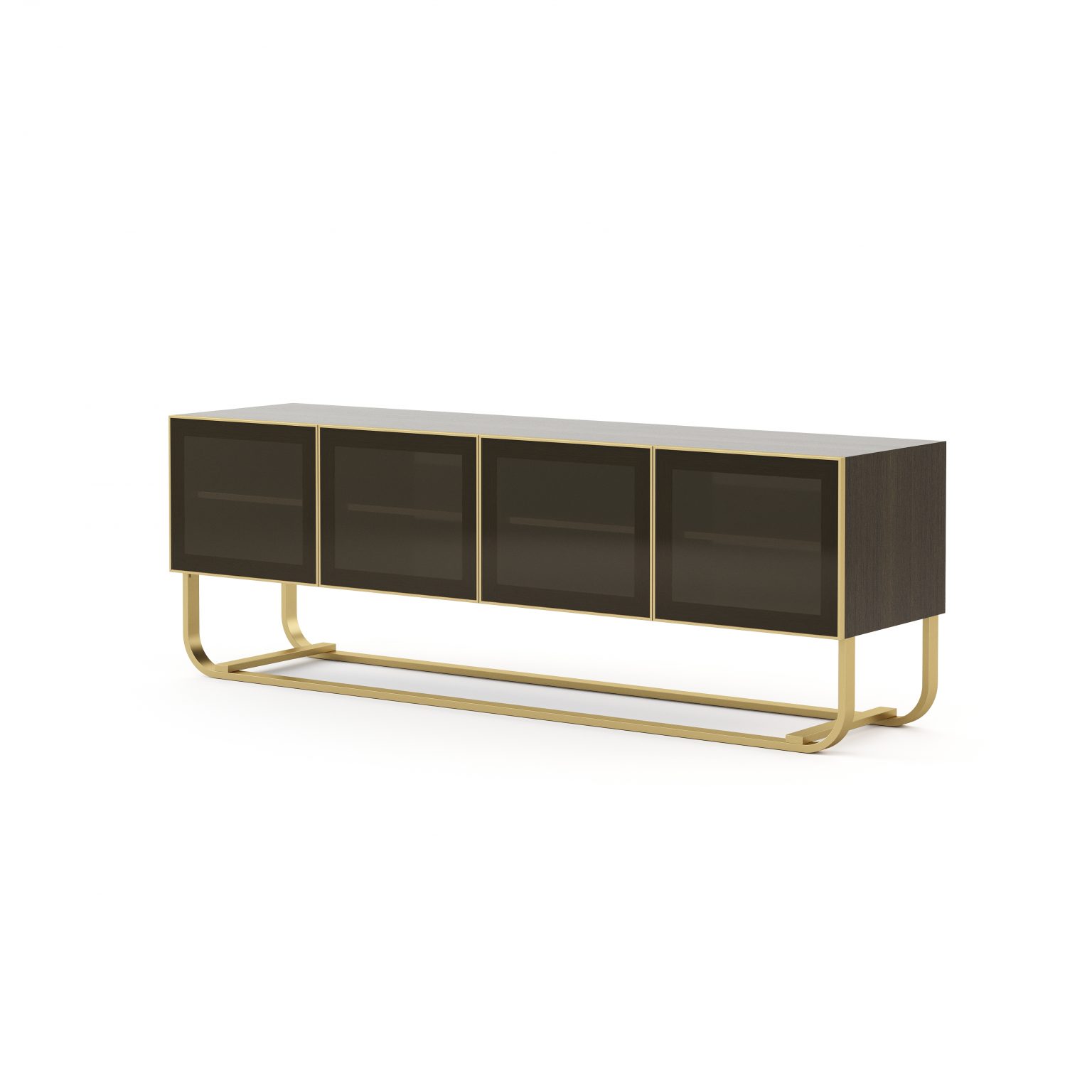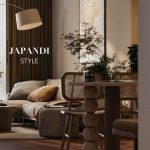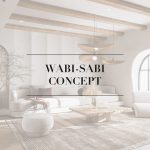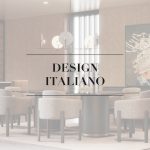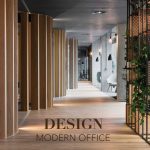When choosing a sideboard for your dining room, it’s essential to consider not only the conventional features we normally think about, but also the aesthetics and design we like. Sideboards are pieces of furniture that have evolved over time, adapting to contemporary needs while retaining a touch of timeless sophistication.
Focus now on the decorating tips our team has prepared to help you make sure you choose the right sideboard for you.
Sideboard features
Size and dimensions
Sideboards generally vary in height from 80 cm to 1 metre, with widths and depths that can be adapted to the space available.
Surface
Many sideboards have a flat surface on top, providing additional space to display decorations, photographs or works of art. This feature not only expands your decorating options, but also adds a dimension to the room so that you can build your own take on the decor.
- Customised sideboard in matt American walnut | Casas d’Avenida housing project
- Involvement of materials and textures in the modern sideboard | Espinho Apartment Project
Types of sideboards
Classic sideboards
Characterised by their elegant lines and ornate details, classic sideboards generally fit in well with more traditional spaces, as they are in line with what this style values most, the detail work and atmosphere with everything you need.
Modern sideboards
Minimalist design, clean lines and contemporary materials define modern sideboards, making them ideal for more discreet, urban spaces where simplicity is valued.
Rustic sideboards
Made from materials such as solid wood, rustic sideboards provide a cosy feel and are great for more rural environments or for those looking for something more natural.
- Manifesto Sideboard
- Landform Sideboard
- Slender Sideboard
Manifesto Sideboard | https://jotabarbosa.com/produto/aparador-manifesto/
Landform Sideboard | https://jotabarbosa.com/produto/aparador-landform/
Slender Sideboard | https://jotabarbosa.com/produto/aparador-slender/
Materials used
Wood
From oak to mahogany, wood is a classic material for sideboards, offering durability and an aesthetic that lasts over time. The variety of wood types allows it to be adapted to different styles of decoration.
Metal
Metal sideboards bring a contemporary touch, being lightweight and often easier to move. This material is often chosen for more industrial or modern designs.
Glass
Glass is often used to create modern and elegant sideboards, adding visual lightness to the room. As well as being visually appealing, glass can also create the illusion of space in smaller environments.
- Modern dining room with mirrored sideboard | Espinho Apartment
Design and Styles
Straight lines vs. curves
Straight line design is associated with a modern aesthetic, while curves tend to refer to a more classic, vintage style. The choice between these styles can reflect the individual’s aesthetic preference or harmony with the rest of the decor.
Specific details
Details such as handles, carvings and sculpted patterns can differentiate the style of the sideboard, making it unique and personalised. These details often reflect the craftsmanship and attention to detail in the production of the furniture.
- Aparador com iluminação embutida | Projeto Moradia Pontevedra
Trends and styles
Scandinavian
Minimalism, functionality and natural materials characterise Scandinavian sideboards, reflecting the roots and genesis of Nordic design.
Industrial
Industrial sideboards often feature robust metal and rough wood, reflecting the look of old factories,
Contemporary
Innovative designs, diverse materials and a unique approach to functionality define contemporary sideboards, in line with modern trends.
- Aparador Ílhavoi
- Aparador Elea
- Aparador His
Aparador Ílhavo | https://jotabarbosa.com/produto/aparador-ilhavo/
Aparador Elea | https://jotabarbosa.com/produto/aparador-elea/
Aparador His | https://jotabarbosa.com/produto/aparador-his/
